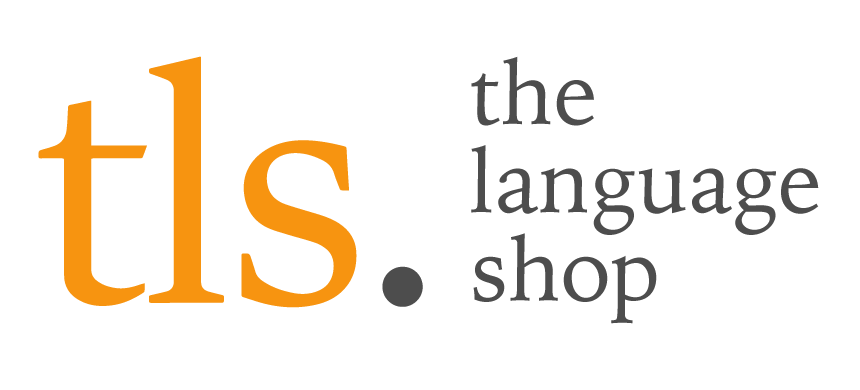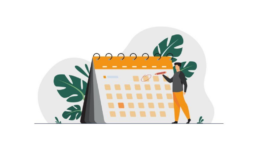Rare language fact file: Shelta
Native to: Ireland and the UK
Number of native speakers: approximately 90k (last count in 1992)
Spoken by: the Irish travelling community
Learn some: Greet a Shelta speaker with ‘slum hawrum’ in the morning and ‘slum dorahog’ in the afternoon or evening.
Interesting facts:
- Shelta is the formal name of this language, which is widely called The Cant or Tarri by its speakers, or De Gammon in Ireland.
- The origins of the language are Irish Gaelic, but as its speakers are travellers, or ‘wanderers’, it is rich in influence from Scottish and English. Due to the longstanding persecution of the travelling communities, Shelta has been used as a ‘cryptolect’, which is a language designed to prevent understanding by outsiders. However, this was not its primary purpose.
- Despite its endangered status, Shelta continues to evolve. In the US, where there is a diasporic travelling community, the ‘englishening’ (a Shelta expression to describe the encroaching influence of English on the language) has had a much bigger impact on Shelta than it has on this side of the Atlantic.
The Language Shop provides support in any language you may need, including many of the rarer ones. Please speak to your account manager about your requirements.
Celebrations Around the World: Sukkot, 9th – 16th October
What: Sukkot is a week of celebration, with different observations on different days, eg on the first two days, Jews are forbidden to work. This is known as yom tov.
Why: Sukkot, as with many festivals at this time of year, gives thanks for the harvest, as well as praising god for protecting the Jews after they left Egypt. It is the only Jewish festival that does not commemorate a historical event.
How: It is traditional to build a sukkah, a kind of outdoor shelter covered in foliage. The sukkah symbolises the shelter given to the Jews in the desert, either in the form of clouds, shielding them from the hot sun, or the tents they lived in. Families spend as much time as possible in the sukkah over the week, eating all meals in it and sometimes sleeping in it too.
On each day of Sukkot, except for the sabbath, people take the Four Kinds (a citron, a palm frond, three myrtle twigs and two willow twigs) and wave them up, down, backwards, forwards, right and left. These represent the various personalities making up the community of Israel.
The last day of Sukkot (or two days in the diasporic communities) is given over to pure enjoyment and celebration.
We always love to hear from customers about their own celebrations. Please get in touch if you have observed any of October’s festivals and would like to share stories or photos with us!
September dates for your diary
Calendar snapshots
9th Anant Chaturdashi – Hindu
Anant Chaturdashi is observed by Hindus and Jains. It marks the end of a joyful ten day celebration of Lord Ganesha, and it is customary to bid the god farewell by immersing an idol in water before sunset.
14th Triumph of the Cross – Christian
Similar to the festival of Meskel described above, the Triumph of the Cross marks the discovery of the true cross. This is a major festival in the Christian calendar and is celebrated differently by the various branches of the church.
26th Rosh Hashanah – Judaism
The two-day celebration of Rosh Hashanah is the Jewish New Year. At this time, Jews traditionally ask for forgiveness for their sins. They also believe that God looks at everyone’s actions over the previous 12 months and decides what the next 12 will be like.
This month’s dates at a glance
5th International Day of Charity
6th Colour Blind Awareness Day
8th Nativity of Virgin Mary – Christian
Nativity of the Theotokos – Orthodox Christian
International Literacy Day
9th Anant Chaturdashi – Hindu
10th World Suicide Prevention Day
14th Triumph of the Cross – Christian
Exaltation of the Cross – Orthodox Christian
15th International Day of Democracy
18th International Equal Pay Day
21st Feast of Saint Matthew – Christian
International Day of Peace
World Alzheimer’s Day
23rd Autumn Equinox, Mabon – Ostara – Wicca/Pagan
Bi Visibility Day
International Day of Sign Languages
25th World Deaf Day
26th Rosh Hashanah – Judaism
Navaratri begins – Hindu
UK National Inclusion Week begins
27th Meskel – Ethiopian Orthodox Christian
28th Fast of Gedaliah – Judaism
International Right to Know Day
29th Michaelmas – Saint Michael and All Angels – Christian
World Heart Day.
Rare language fact file: Adamorobe Sign Language
Native to: Adamorobe village, Ghana
Number of native speakers: 35
Spoken by: Adamorobe villagers
Learn some: You can learn how to sign the days of the week with this YouTube video.
Interesting facts:
- Adamorobe has a much higher incidence of deafness than the rest of Ghana. This stands now at roughly 2% of the population (compared to 0.4% in the continent of Africa as a whole), but in the past at a much higher percentage – some sources giving it as high as 25%. Researchers have identified a mutated gene that is responsible for this, which has been passed down through generations.
- The village developed its own sign language, which is completely distinct from the official Ghanaian Sign Language. In order for Adamorobe’s deaf population to be fully integrated into village life, everyone, hearing or deaf, uses Adamorobe Sign Language.
- As with all minority languages, Adamorobe Sign Language is now under threat from more dominant ones. Deaf children in the village are now sent to school at Ghana’s boarding school for the deaf, where they learn the official Ghanaian Sign Language, alongside written English.
The Language Shop provides support in any language you may need, including many of the rarer ones. Please speak to your account manager about your requirements.
Celebrations around the world: Meskel (Ethiopian Orthodox), 27th September
What:
Meskel translates in Ge’ez, the ancient Ethiopian language, as ‘cross’. This annual festival celebrates the discovery of the cross that Jesus was crucified upon.
Why:
According to scripture, the Roman Emperor Constantine, Queen Helena, in the 4th century had a dream where she was instructed to build a bonfire. The smoke would show her where the true cross was buried. She built a fire and her dream came to pass.
How:
Every year on 27th September, crowds gather in the Ethiopian capital, Addis Ababa, for the celebrations. Meskel Square, named for the festival, hosts a demera, or bonfire, which is decorated with daisies. Celebrations start early and continue all day and into the evening, when they are concluded with shared prayers.
We always love to hear from customers about their own celebrations. Please get in touch if you have observed any of September’s festivals and would like to share stories or photos with us!
August dates for your diary
Calendar snapshots
1st – Lammas, Pagan
Lammas is an ancient festival that would mark the beginning of the harvest for Celtic agrarian communities. To honour the harvest, people often bake a loaf of bread and bring it to church, showing the overlap between old pagan ways and Christianity.
7th – Tish’a B’av, Judaism
This is the saddest festival in the Jewish calendar, and acts as a day of mourning for several tragedies to befall the Jews over the centuries, as far back as the destruction of the first temple in Jerusalem in 586 BCE, when 100,000 Jews were killed.
23rd - International Day for the Remembrance of the Slave Trade and its Abolition
This day, started by UNESCO, marks the anniversary of the Haitian revolution, led by Toussaint Louverture, which was instrumental in bringing about the abolition of the Transatlantic Slave Trade. The day aims to keep the Transatlantic Slave Trade alive in our collective memory, and to examine the causes and consequences of it, some of which persist to this day.
This month’s dates at a glance
1st Lammas – Pagan
Fast in honour of Holy Mother of Lord Jesus – Orthodox Christian
Lughnasadh – Imbolc – Wicca/Pagan
6th Feast of Transfiguration of Our Lord – Christian
Transfiguration of the Lord – Orthodox Christian
7th Tish’a B’av – Judaism
8th Ashura – Islam
9th International Day of the World’s Indigenous Peoples
10th Feast of Saint Lawrence – Christian
11th Raksha Bandhan – Hindu
12th International Youth Day
15th Assumption of Blessed Virgin Mary – Catholic Christian
Dormition of the Theotokos – Orthodox Christian
18th Krishna Janmashtami – Hindu
19th World Humanitarian Day
22nd Queenship of Mary – Catholic Christian
International Day Commemorating the Victims of Acts of Violence based on Religion or Belief
23rd Paryushana Parvarambha begins – Jain
International Day for the Remembrance of the Slave Trade and its Abolition
24th Feast of Saint Bartholomew the Apostle – Christian
29th Beheading of Saint John the Baptist – Christian
Summer Bank Holiday – England, Wales and Northern Ireland
31st Ganesh Chaturthi – Hindu
Samvatsari – Jain.
Rare language fact file: Inuktun
Native to: Qaanaaq and other parts of northwestern Greenland
Number of native speakers: 770 (in 2010)
Spoken by: the Inughuit (the Greenlandic Inuit)
Learn some: Greet people by saying ‘aluu’ (hello) and say goodbye with ‘baaj’ (bye).
Interesting facts:
- Words in Inuktun can be incredibly long and their meaning can be translated into whole sentences in other languages! For example, ‘amirlahiunguqpaghuaqatauqattarhamanngitsurhuugama’ can be translated into English as, ‘because I haven’t taken part in hunts involving many people’.
- Although it is spoken by relatively few people, Inuktun continues to evolve and new words are created all the time. The word for ‘computer’, for example, is ‘qarasaasiaq’, which translates as ‘artificial brain’.
- Inughuits used to have a rich oral storytelling culture. However, the rapid modernising of culture in Greenland has led to this being replaced by Danish and English language films, which cannot be subtitled into Inuktun because its words are too long.
The Language Shop provides support in any language you may need, including many of the rarer ones. Please speak to your account manager about your requirements.
Celebrations around the world: Raksha Bandhan, 11 July
What:
Raksha Bandhan is a Hindu, Sikh (though not all Sikhs celebrate the day) and Jain tradition, honouring the love and bond between siblings.
Why:
The celebration of sibling love is based on a story featuring the supreme Hindu god, Lord Krishna. According to legend, he cut his finger on his sudarshan chakra (a circular weapon). His sister ripped her sari and used it to bandage her brother’s injury. Inspired by her act of love, Lord Krishna swore always to protect his sister.
How:
Siblings tie a special red thread, called a ‘rakhri’, on to each other’s wrists. This symbolises protection, which historically was the physical protection provided by men to their sisters, and only men would receive a rakhri. Nowadays, both brothers and sisters receive a rakhri.
We always love to hear from customers about their own celebrations. Please get in touch if you have observed any of August's festivals and would like to share stories or photos with us!
Meet The Team: Portuguese and English Interpreter, Helga
Every month, we introduce you to one of our team. This month, meet Helga, one of our freelance interpreters, working in Portuguese and English.
1) Tell us about the role you do for TLS
I’ve worked as an interpreter for The Language Shop for over a decade. My role is to facilitate, through interpreting, the communication between an English speaker and a non-English speaker in different settings like the National Health Service, Police, Education etc.
2) What's been your favourite project at TLS?
My favourite project at The Language Shop was interpreting with Shelter. I really felt that I was supporting people at very vulnerable times in their lives while they're going through homelessness, distress and mental affliction.
3) What has been your biggest challenge?
The biggest challenge of an interpreter is unpredictability. Every assignment is different so as an interpreter it's necessary to be adaptable to any kind of settings such as courtrooms or out and about in the community. Also, to be mindful and alert.
4) If you didn’t do your current job, what would you like to do ?
If I was not working as an interpreter I would have been a fashion designer.
5) Tell us something interesting about you.
Something interesting about me is that I like playing table tennis.
6) If you could meet someone, living or dead, who would it be and why?
If I could meet someone it would be Oscar Wilde. He was true to himself, creative with words and with his style too. He was an influencer of his time. I think I could learn and laugh a lot with him, what a great mind.
7) What are your ambitions for the rest of the year?
In the next 12 months I am planning to do further studying in translating so that I can improve my skills as an interpreter.
If you would like to be profiled, or know someone else who would, please get in touch by emailing zainub.patel@newham.gov.uk
EU remote interpreters on strike
Interpreters working remotely for the EU made the decision to strike, in protest at what they describe as poor working conditions.
Restrictions over the last two years of the pandemic led to a huge increase in remote interpreting. With that change came protections for interpreters, including time limits on assignments, to protect against hearing damage.
Now these restrictions have been lifted, whereas remote working remains. Interpreters’ complaints about this include poor broadband connections, noisy environments and substandard equipment impeding their ability to do a good job, as well as hearing damage reported by approximately 100 staff interpreters.
One interpreter described the situation colourfully: “It’s like driving at night under the rain versus travelling by day under good weather. You get to your destination at the same hour, but in the first case, there’s a growing risk of accident and increased fatigue once you get there.”
In response to the strike, the EU brought in temporary workers, which, according to the striking delegation of interpreters, were not accredited and risked compromising quality.
Read more about the strike here










